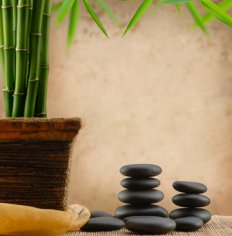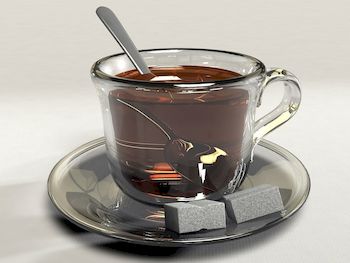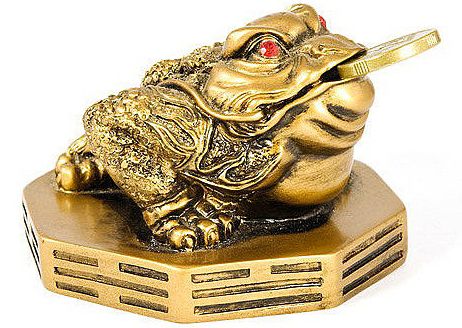
Feng shui studies the influence of one's surroundings (forests, buildings, tables, sofas, windows) on one's life. It teaches harmony with the environment and the ability to arrange one's life in accordance with the laws of nature. The teaching is based on a system of preventative measures and actions.
The world is full of contradictions: light and dark, heat and cold, good and evil, birth and death. Opposites don't struggle; all life, which is in constant flux and change, is based on their interaction with each other. Everywhere there are two poles – victory and defeat. Our ancestors had their own Feng Shui (for example, hanging a horseshoe). There's still debate about the correct way to hang a horseshoe with its horns facing down. This means all troubles and bad luck will flow away and purify the space. A horseshoe hung with its pointed ends up resembles the horns of an evil spirit. However, in this case, it resembles a cup and brings prosperity, success, good fortune, and health into the home.
Feng shui is based on common sense and follows the simple logic of things; in reality, it's about hygiene and safety. It's difficult to inspire change, and even more difficult to convince people to adhere to hygiene and safety rules.
If you're drinking from a broken cup, and I'm trying to convince you that it's unhygienic to drink from it (the cup's integrity is compromised, and it's made of clay, like a sponge, absorbing everything you pour into it, there's a risk of poisoning), it all sounds unconvincing, even if I tell you that the cup, when you pour boiling water into it, can crack and cause a burn. You'll come up with a ton of excuses. But if I tell you that a broken cup is detrimental to your career and personal life, an obstacle to cash flow and business success, then that cup will quickly end up in the trash.
Compare.
According to Feng Shui and hygiene and safety.
Building a house on a hill promises success and prosperity. Building a house in a lowland is vulnerable to fire and flood. Air circulation is poor, and residents receive less oxygen.
The stove shouldn't be placed near the sink, as the elements of Water and Fire stimulate suppressive energy. Ideally, the stove should be located away from the sink and refrigerator. From a hygiene standpoint, turning on the faucet can cause water to spill into containers containing cooked food.
When cooking, water may spill onto a hot frying pan, causing a burn.
Don't place a table on the line between a window and a door; you'll be caught in an energy flow. If there's a draft, everything on the table will end up on the floor, and you could catch a cold.
A doormat provides energetic protection, trapping dirty energy. Having a doormat ensures you bring less dirt into your home.
Don't leave dishes unwashed on the stove; this blocks the channels through which future prosperity approaches. Unwashed dishes will still need to be washed, but it will only take more time and cause irritability. Often, unwashed dishes can attract insects into the home.
Never sit with your back to the door; it's dangerous. You might be so engrossed in your work that you don't notice someone entering, which can be alarming.
A corner is a place of concentrated energy, and if a person sits on a corner, the energy flows directly toward them, resulting in imbalance, misfortune, and illness. Tables with sharp corners create negative energy. When a person sits at a table on a corner, the corner points toward the chest; if someone accidentally pushes them, injury is possible.
The toilet lid must be closed, otherwise money will leak out. From a hygiene standpoint, an open lid means odor, germs, and ultimately illness and medical bills.
Mirrors in the bedroom are unacceptable. They can ruin your life. We are all vulnerable in our sleep. Waking up from a bad dream and seeing yourself in the mirror at night can be frightening.
Papers scattered on the desk negatively impact your success at work. Business partners are unlikely to appreciate such a sight, and clients will lose trust in you.
A chandelier shouldn't be positioned overhead. Otherwise, you'll constantly feel pressure from all sides. It might simply fall, and the bulb might burn out or break.
When you enter the house, the kitchen shouldn't be visible. Uninvited guests shouldn't see a messy kitchen while you're cooking.
Don't hand your neighbor a knife or fork with the sharp end of it; it could cause a fight. Your neighbor might cut themselves, and you might feel guilty.
Windows should face the sunny side; beneficial energy comes from the south. Residents of apartments with north-facing windows are more likely to get sick and are always in a bad mood.
Broken things and clutter in the apartment contribute to energy stagnation. Clutter is distracting, irritating, interferes with concentration, and leads to depression.
If your faucets are leaking, it's a sign of money leaking. After a while, you'll check your meter and be upset by the amount you'll owe.
Excessive hospitality breaches your defenses. You will be envied. No one exists without envy (scientifically proven).
Conclusion.
“It's foolish to blame feng shui for every problem, just as it's foolish to attribute your success to it. You can achieve far greater results intuitively than by following a set of feng shui rules.”
No home is perfect. Learn to listen and hear, and focus on your inner state.
Before making changes, be sure to consider whether they are necessary. Destiny is not a matter of chance, but of choice.
– Signs and symbols surround us constantly. There are certain patterns in life. Be observant.
“Everywhere a person is affected by energy waves and fields. In one place we feel energized, in another, depressed.”
And also:
– Don’t keep items in your house that you don’t like.
– Distance and measure are needed in everything.
“The strongest aura emanates from the fingers and eyes. The aura remains intact when a person is healthy.”
– Every day we receive a stream of unnecessary and destructive information, stop receiving it.





